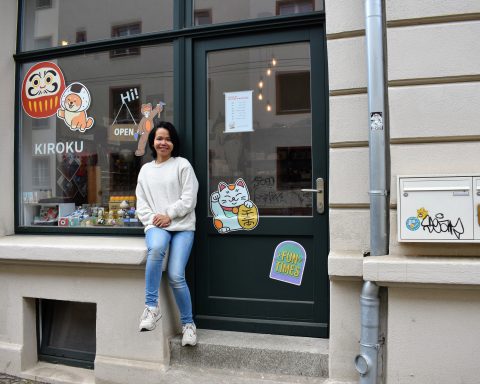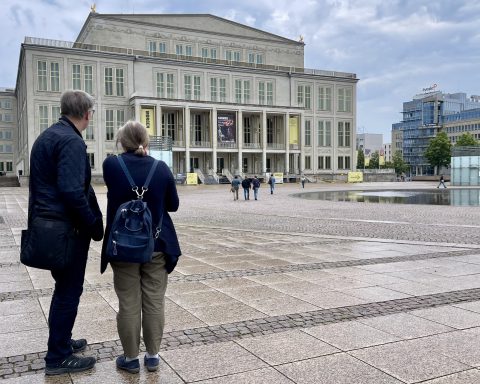Over the past two years, I have been part of different groups that you could describe as startups. The self-exploiting outsourced R&D departments of today. The teams with high hopes to make an idea work out which they cannot yet describe to you in 30 seconds, and which burns money instead of earning some.
I love this life.
On the team slides of our pitch decks and on the ones of other crazily ambitious, crazily smart and crazily crazy teams, one can read where we studied, where we worked before, for how many years, and so on. Sure, my work experiences in the industry and my studies did form me and prepare me for some of the serious moments of being an entrepreneur. But one thing few of us put on there is what really trained us.
Sometimes it takes being an athlete to make it in the startup scene – literally. The experience of, say, a former volleyball player might indeed show that this guy is tall (better salary on average, according to studies), competitive, and can be team oriented.
Recently I saw a nice pitch mentioning a game-changing event of crossing the Himalayas by bike: The person had left their career as a venture capitalist to build their own mission. Once again during my startup journey, I found myself reminded of my own school of life, which gave me strategy, Durchhaltevermögen, street smarts and trust in people.
I’m talking about hitchhiking.
A friend had told me he would hitchhike to Turkey, and then wrote me e-mails from Iran and Pakistan.
He described the great hospitality he had encountered, that despite not being able to communicate with proper words, he had been invited to so many houses that he had grown fat. I was deeply impressed and really wanted to try it out.
So I did it – quite a lot of it, actually – and have carried what I learned along the way to today. Here’s my personal story and guide, which can perhaps give you some insights, whether you want to venture into hitchhiking or into business.

Chapter 1: Getting on the road
The first step was the most difficult for me to take. It took me three months to make the decision to really do it. A penpal (yes, this was back in 2004) from Zurich, Switzerland, had invited me to visit after my graduation. So at the end of my last day of school, a schoolmate drove me to the autobahn in Dresden, Germany.
At the entry to the highway, we had to stop at a red light. I got off, asked the driver in the car in front of us, got a no, asked the next one, got a yes, and was on my way to Zurich. At 200 km/h. The driver turned out to be a co-founder of my uncle’s company.
The next car was older but the driver even faster. From that point on, always the first driver I asked agreed to give me a ride. I had planned to arrive in the morning, knowing it was 700 km away. But five drivers and six hours later, at 8 pm, I was already all the way there in Zurich.
For the way back I had booked a night train, just in case. And I used my ticket. 13 hours, in a seat, barely sleeping.
That weekend was the start of the next 50,000 km.
Chapter 2: Paying with a smile and a story
During the next years I forgot how to use a train – or a train station. I hitchhiked everywhere in Europe, sometimes for a reason, sometimes simply out of curiosity for places. During discussions with friends, the issue of exploitation would occasionally come up.
True, I did not pay with money, although 100 kg cost about 50 cents in fuel per 100 km. But most drivers who picked me up enjoyed the conversation. “If it’s free, then you are the product” applies to hitchhiking as well as to its conceptual partner, couchsurfing.
When it comes to using a ride-sharing service like blablacar, I shudder when a passenger just gets in on the backseat and puts on the zero-communication mode, or an unfriendly one. The passenger pays for the service, and expects to get just that from the driver, the chauffeur.
As a hitchhiker, you learn that there is more than one currency. More than money as a reason to do something. It’s important for your UX (user experience design) later. And it’s also important for you personally, because as the founder of a startup, you may suffer low tides. You’ll want to be able to rely on people to help you out for something other than cash in return.

Chapter 3: Getting out of the bubble as a hitchhiker
Recently I met a guy who told me most of his corporate friends were unhappy, and asking themselves why they do what they do. I answered that very few of my friends were asking the same question, because most had already decided to do what they saw a reason in.
The bubbles we live in form our view of the world. The filters built into our perception are becoming better at serving our bubble-defined worldview. For an entrepreneur, this is especially dangerous.
Blank spots, when you don’t know what you don’t know, are the most dangerous challenges to your business. When hitchhiking, you might meet the helicopter pilot, and right after that, the mother with three kids.
Hitchhiking served as good training to check (and perhaps debunk) my perception of the world, and of people – because it’s pretty random. It taught me to be open to meeting the unknown and reframing my assumptions and hypotheses.

Chapter 4: Learning to read the other, and the situation
Yes, life is potentially (and ultimately) fatal, and hitchhiking can be dangerous, too. You are riding with strangers, and the car, the driving style and other factors are a risk. Also, you have to try to understand which route they might take, even if you don’t speak the same language, and if there will be a good spot to get off and switch cars before they turn to go their separate way.
Entrepreneurship is just the same. You have to read the situations, you have to place a bet and make decisions, sometimes quickly, often without knowing the full picture. And you must learn from mistakes, without regrets.
Spending the night at a gas station is a rough lesson for the hitchhiker. But life goes on. Failing with your business model is a rough lesson for the entrepreneur – but not as rough if you see it as training. Life goes on, all the same.
Training your senses, though, can spare you a lot of headache.

Chapter 5: Trusting and acting on gut feeling
This lesson goes together with “training your senses:” learning to say no. As a hitchhiker, I once said yes when I had the feeling something was wrong. I should have listened to my instincts.
In the middle of nowhere in Bulgaria, at hot and sunny noon, I was tired and exhausted, because the whole weekend had gone wrong. And so had the hitchhiking morning, with me taking the wrong tram to the highway in Sofia. There was this car approaching quite slowly, and it was the first time I ever sent an SMS to my best friend with the car’s license plate number, just in case. Well, the story ended up with the drivers talking about my luggage in Bulgarian, and driving me into a forlorn backstreet.
They let me go, because I lied about my stuff. I had just been robbed on a bus and did not want this to happen again a month later.
As a hitchhiker and as an entrepreneur, you have to trust your guts, and be able to say no to offers that don’t feel right. There is always another option!
Basically, your internal compass knows more than you think. If something stinks, don’t convince yourself to buy it.
Chapter 6: Being diplomatic – but firm
Something like guys wanting to steal your stuff happens rarely, if ever. A lot more often, you simply meet people who don’t match your way of thinking. It’s a challenge.
If you are getting a lift by an extremist of any sort, convincing them of the complete opposite will be difficult, but you can at least try to give them your view – they might not get to hear other opinions outside their bubble often.
If you are asked favors, including sexual favors, or if you are intimidated, you learn that diplomacy is more than just talking nicely – a clear no is part of diplomacy, too. Just as helping is: The Polish guy driving home from Paris to Krakow in one go, to be able to see his family for Christmas, was definitely happy to have me driving his car. He smiled while sleeping.
When I co-founded my first company, I was quite naive and very optimistic. Hitchhiking prepared me to hear others out, to give my opinion without being thrown out of the car, to know what I can accept or decline, to be quicker saying no.

Chapter 7: Expecting to be surprised
Don’t go after license plates. And don’t prejudge the one you end up going for.
One of the things I did wrong in the beginning of my hitchhiking period was to choose to ask drivers with the license plates from the very places I wanted to go to. I missed out on more than 50% of the people.
On the other hand, people hitchhiking often look different from what they may usually look like.
Once a very well-dressed guy in his thirties gave me a lift in the Czech Republic, telling me about his job as a sales director. He told me he went hitchhiking on every holiday, often meeting clients – who would only realize who he was after a few minutes.
Fun fact: my mom once did not want to pick me up, because my hairstyle had changed so much she did not realize who I was.
Epilogue: Paying it forward
Many of the people giving me a ride had been hitchhiking themselves before. I have not hitchhiked in a long time now, even though I tried to again for this article. The experience of giving a ride is good training too, because we are all on a journey, and some hitchhikers might challenge your thinking and beliefs.
I learned a lot from the people who gave me the chance to give them a lift. And I was happy to pay it forward.
This approach helped me in business, too. Many people are happy to pass on their knowledge and experience, and without them we would be only half as far as we have come. I also always try to help the ones who are a step or two behind me, with what I have learned – and find out new things in the process.
I don’t see this in all the senior entrepreneurs though, and I don’t see it in all the young entrepreneurs, either. Being open, helpful and friendly is not a sign of weakness though; it’s a sign of strength.
This is the moment to say thank you to all the ones who paid it forward to me and my project teams – thank you! You would be great hitchhikers!
by Martin Jaehnert
Martin is in his 30s, and a Leipziger by choice. He studied Engineering, Languages and Design Thinking in Leipzig, Potsdam and Brussels while hitchhiking around Europe. He worked for Mercedes, Infineon, DHL, BMW and Airbus, then decided to channel his passion for brainstorming and ideation into his own business. He co-founded dreiklang, reviving a GDR T-shirt label thanks to a successful crowdfunding campaign. With their regional supply chain approach, dreiklang won the Sächsischen Umweltpreis 2015. Martin also co-founded binee, a former smart recycling startup as a result of the Global Entrepreneurship Summer School project and later part of Leipzig’s HHL SpinLab Accelerator.









